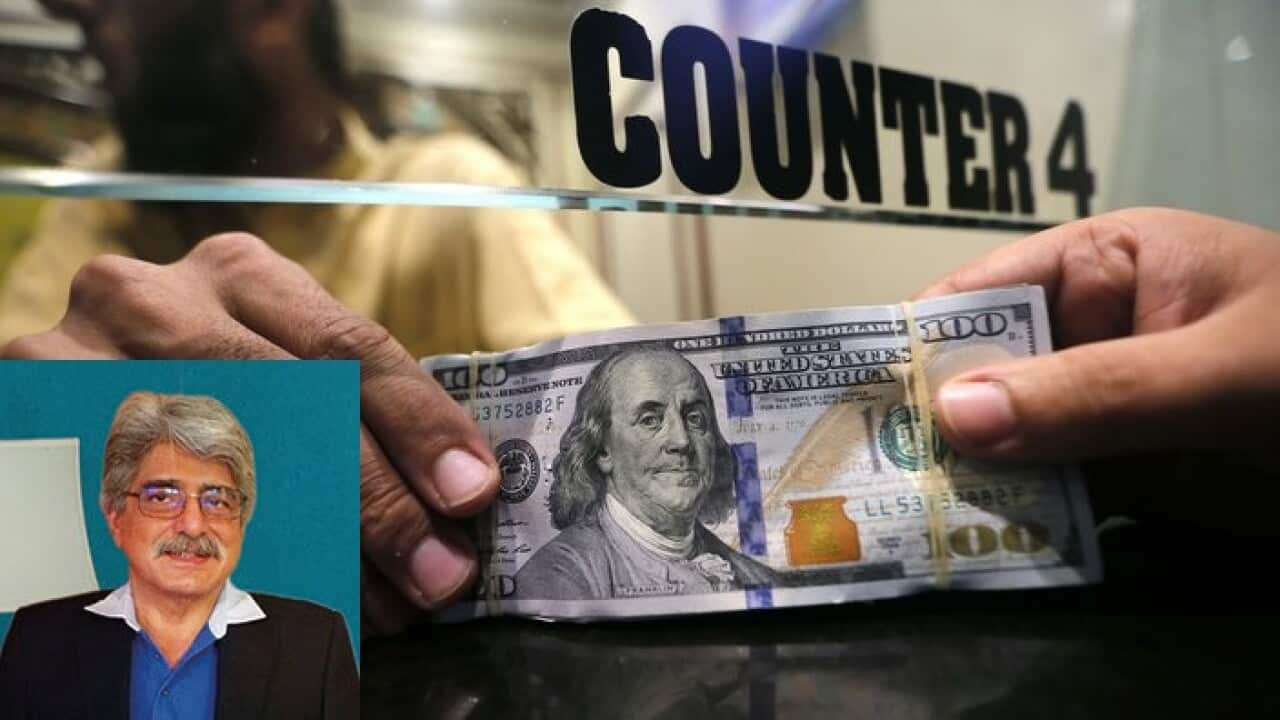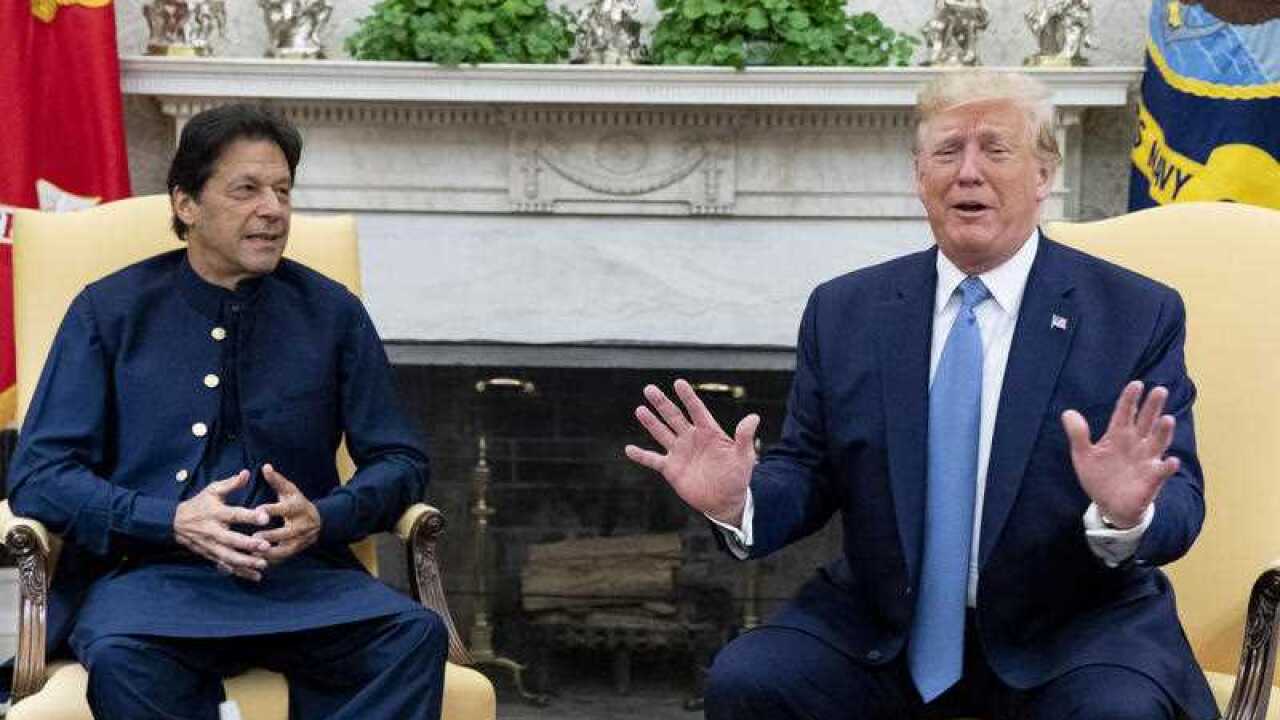Pakistan is currently witnessing harsh economic condititions with increasing current account and trade deficits, declining rupee value and stock market index, and an ever rising financial debt.
The new government has decided to take the IMF package to boost its economic plan for the next five years.
SBS Urdu spoke to Dr Salman Shah (Finance Minister of Pakistan during 2004 – 2008 and advisor to the government on finance and economy in other tenures) about the governments reforms, economic plans and the road ahead.
Current economic situation
According to Dr Shah, there are severe macroeconomic imbalances that need to be taken care immediately and IMF's (International Monetary Fund) program is a suitable step in that direction.
“Pakistan’s current account deficit is currently 6% of GDP resulting in a balance of payment issue which could potentially lead to a crisis situation. So there is a need to do something about it. With IMF support, Pakistan will be in a better position to handle economic problems. Also, there is a big trade deficit with imports around $60 billion and exports around $25 billion. So to cut this $35 billion deficit, the country will have to take strong measures.
Also, there is a big trade deficit with imports around $60 billion and exports around $25 billion. So to cut this $35 billion deficit, the country will have to take strong measures.

IMF Managing Director Christine Lagarde (3-R) sitting down for talks with Pakistan Finance Minister Asad Umar (3-L) in Bali. EPA/IMF/STEPHEN JAFFE Source: IMF
Apart from that, fiscal deficit needs to be taken care of along with taxation reforms.
Competitiveness and productivity has to be improved; investment climate needs a boost and public sector entities need a major uplift.”
“Pakistan has to implement the reform agenda as quickly as possible.”
Going again to IMF for reforms?
Dr Shah said that while IMF packages have been taken in the past and they start to show positive results, importance is not given to structural reforms, which result in economic constraints and Pakistan therefore has to revert back to the monetary fund.
"The new government is reform oriented. It is in their agenda to work on the various entities, bring merit in state institutions, increase transparency and reduce corruption.”
Investment Opportunities for Overseas Pakistanis
The former finance minister of the country said that Pakistanis living abroad are very talented and the country currently needs them.
“Traditionally, overseas Pakistanis invest in real estate of the country. So we can certainly see further investment there. The government is developing the national housing authority which will provide opportunities for people living outside Pakistan to invest back home.
Then we have small and large businesses where we could see investment. I see a lot of investment opportunities here.
“The main focus should be on boosting ‘investor’s confidence’. This is where IMF program can make a difference if it is successfully implemented.”
Currently the growth rate as per IMF’s program would be around 4% but with successful measures this can improve to 7 – 8 % in the long run.
The government is quite interested to facilitate the overseas Pakistanis in all aspects.”
Devaluation of Pak Rupee and inflation
On the question of whether devaluation will assist a common man in the current economic crisis, Dr Shah said the rupee devaluation will result in the increase of prices and inflation will rise.
“We might witness a slowdown in economy and this is the price we will have to pay. But this could also lead to better investment climate.”
“The reform agenda will be painful initially, but if it succeeds then we might even see economic growth as there is huge potential.”
CPEC will have a positive impact
China and Pakistan are working on China Pakistan Economic Corridor (CPEC). We could see seven to eight Special Economic Zones (SEZs) across the country. The investment opportunities in these zones could be huge.
The new economic team
Talking about the economic setup of the government, Dr Shah said there seems to be a bit of uncertainty in the new setup but with the passage of time they will be able to settle down.
“What they need to focus on is confidence building required for investors. They must reach out to overseas Pakistanis.
“Prime Minister Imran Khan seems to be focused, determined with a vision and a strong likelihood that he will be able to get the best performance from his team.”
But if the team is not able to perform, then he is ready to make the required changes.
Therefore, I think the system he is developing will be effective for the country.”
Outlook
Dr Shah said Pakistan is a country with a large population of over 220 million.
"There is youth bulge, 60% of the population is under 25 years and working age population is expanding.
So if this youth is employed, we can foresee a sustainable economy in future."
(The comments are translated from the Urdu interview, which can be listened by pressing the 'play' button at the top.)






